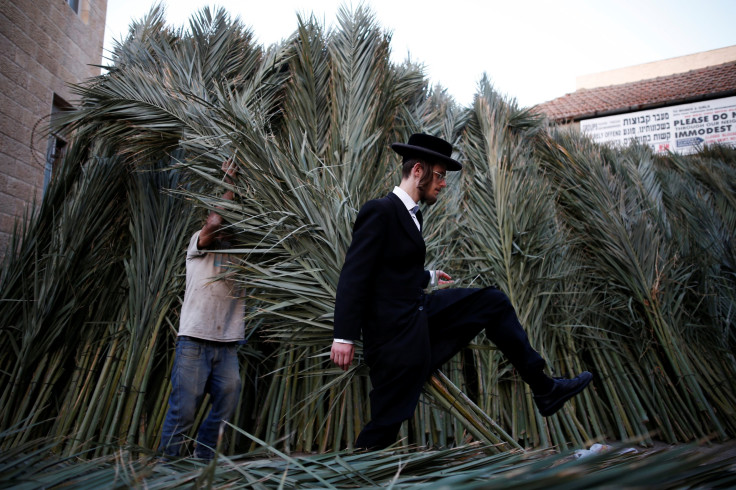What And When Is Sukkot? 5 Quick Facts You Should Know About The Jewish Holiday's Origins And How To Celebrate

While most people know of Hanukkah, the eight-day Jewish holiday, the religion's seven-day festivity is not quite as well known. Read on for some insight into Sukkot, also referred to as the “Feast of Tabernacles,” which starts on Sunday evening and ends at sundown on Oct. 23.
What is the origin of Sukkot? The word “sukkot” in Hebrew describes the booths or temporary dwellings used as shelter during the 40 years the Jewish people traveled across the Sinai desert, known as the Exodus. Moses later brought the sukkot, which housed the Ark of the Covenant, a sacred chest containing the Ten Commandments, to Jerusalem, where the huts themselves became sacred.
Did it really happen that way? The holiday commemorates this pilgrimage, though whether or not the sukkot, or tabernacles, were brought to Jerusalem is unclear, as the story was written a century later during the reign of King Josiah, and may have been part of the ruler's effort to concentrate worship in Jerusalem.
Regardless of the accuracy of the event’s origins, the hut-like sukkah eventually became a symbol of the holiday, its meaning articulated in the Leviticus passage, “Ye shall dwell in booths seven days; all that are Israelites born shall dwell in booths: That your generations may now that I made the children of Israel to dwell in booths, when I brought them out of the land of Egypt.”
Ask a rabbi: "How can I observe #Sukkot if I don't have a sukkah?" https://t.co/bKuv5Z7HzO pic.twitter.com/ZpQmM2P0mv
How do you celebrate? Some build actual sukkot and spend the week camping under the stars and eating beneath roofs constructed from fall branches over a wooden frame, weather permitting. But for most followers of the Jewish faith, it’s actually a lot like Thanksgiving.
Also known as “The Season of Our Joy,” Sukkot involves family fun time, festive meals and giving thanks. The feast component is also mentioned in the book of Exodus, where Sukkot is referred to as a “festival of ingathering at the turn of the year.” In other words, like Turkey Day, it’s a celebration of the end of the harvest season—and of the opportunity to reap its benefits by giving yourself a food coma.
This #Sukkot, celebrate the fall harvest with stuffed butternut squash #recipe https://t.co/QmkVBeC5Mb pic.twitter.com/b3p3LcISal
— Haaretz.com (@haaretzcom) October 13, 2016
© Copyright IBTimes 2025. All rights reserved.






















